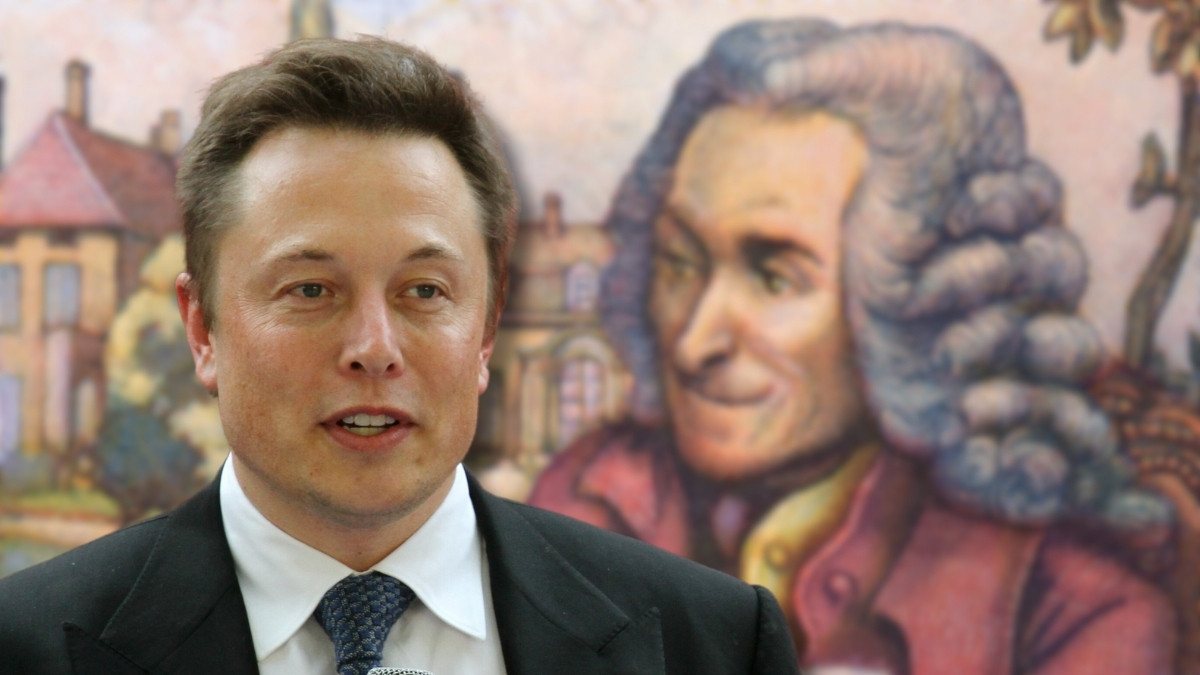In this article, we’ll unravel the circumstances leading up to the recent storm on Twitter after CEO Elon Musk misattributed a quote to French philosopher Voltaire.
Notably, the quote didn’t originate from Voltaire, but from a notorious neo-Nazi figure.
Key Takeaways:
- Elon Musk misquotes Voltaire, attributing a neo-Nazi quote to him.
- The misattributed quote sparks controversy, highlighting the dangers of disinformation on social media platforms.
- This is not the first time the misattributed quote has found its way into high-profile Twitter feeds.
- The incident raises questions about Elon Musk’s understanding of the content he shares, and the power of his influence.
- Despite a previous fact-check by The Associated Press, the misquote continues to circulate online.
- Twitter has an ongoing problem with the spread of fake quotes, some of which Musk has helped amplify.
The Infamous Tweet: Tracing the Source of the Misquote
Twitter was ablaze this past Saturday.
Elon Musk, the CEO, found himself at the epicenter of a controversy.
His misstep?
Incorrectly attributing a contentious quote to French philosopher Voltaire.
The quote was encased in a meme featuring a giant hand suppressing tiny figures.
The accompanying text read: “To learn who rules over you, simply find out who you are not allowed to criticize – Voltaire.”
An added joke beneath it said, “we need to rise up against children with leukemia.”
A little digging, however, reveals that Voltaire was not the source of this quote.
The Real Story Behind the Quote
The so-called “Voltaire quote” has been unmasked before.
Its true origins were brought to light last year by The Associated Press.
Republican Kentucky Congressman Thomas Massie had shared the same quote.
He too attributed it to Voltaire while criticizing Dr Anthony Fauci.
However, The Associated Press report busted this myth.
The quoted line was not Voltaire’s words.
Instead, they belonged to Kevin Alfred Strom, a self-proclaimed American white nationalist and Holocaust denier.
Strom had made this statement during a 1993 radio broadcast.
Despite being made over a century after Voltaire’s death in 1778, the quote has repeatedly been attributed to him.
Actor John Cusack, too, fell into this trap in 2019.
After tweeting the misattributed quote, he deleted his post and offered an apology.
Disinformation on Social Media: A Widespread Issue
Unverified and fake quotes like these run rampant on Twitter.
This incident with Musk is just one of many that highlight a prevalent issue.
Social media platforms like Twitter have become breeding grounds for misinformation.
Such platforms can often be exploited by extremist groups to push their narrative.
Musk, in fact, has previously amplified such content.
A recent example involved a misquoted statement from Mark Twain.
The quote read, “The truth has no defense against a fool determined to believe a lie.”
Twain, however, never said these words.
Elon Musk: A Twitter Powerhouse Under Scrutiny
Elon Musk, known for his groundbreaking work at SpaceX and Tesla, is a prominent figure on Twitter.
His tweets often garner considerable attention.
His followers, numbering in the millions, hang onto his every word.
But with great power comes great responsibility.
This incident with the misattributed quote has prompted criticism from journalists and commentators.
Some, like Matt Yglesias, took a swipe at Musk asking, “When are we getting a fourteen words tweet?”
This is a reference to a popular white supremacist meme that is widely shared on Twitter.
While Musk has faced accusations of racism in the past, he has repeatedly refuted them.
His recent Twitter activities, however, have amplified voices on the far right.
His interactions with figures like the recently ousted Fox News host Tucker Carlson have added to these concerns.
Twitter’s Role in Spreading Misinformation
Twitter, a dominant player in the realm of social media, has a significant role in this narrative.
The platform has been widely used to spread misinformation, fake quotes, and unfounded theories.
When queried about the incident on Saturday, Twitter responded with an automated response set up by Musk: a poop emoji.
As of now, no substantial comment has come from the social media giant.
Twitter’s role in checking the spread of misinformation remains a pressing concern.
It’s a cautionary tale about the power of social media platforms and the perils of disinformation.
In an age where information is readily available at our fingertips, the responsibility of fact-checking and maintaining accuracy cannot be understated.
The takeaway from this episode?
Whether you’re an influential figure or an everyday user, always double-check before you hit that ‘Tweet’ button.
Conclusion
As we delve into the cascading effects of misinformation on social media, Elon Musk’s recent tweet serves as a stark reminder of the power and responsibility that comes with influence.
While misquotes and fake news might seem harmless, they contribute to the broader problem of disinformation.
As a key figure in tech and social media, Musk’s mishap underlines the importance of verifying information before sharing it.
Amid the growing concerns over disinformation on platforms like Twitter, it becomes ever more critical for us to question and fact-check the information we consume, especially when it comes from influential figures.
 Sections of this topic
Sections of this topic
















